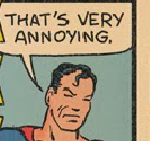|
Dude hasn't been paid, so I don't know if it counts as a success yet
|
|
|
|

|
| # ? May 30, 2024 01:53 |
|
Trust question. My grandma is 93 years old and I just found out she doesn’t have a trust for her estate. She asked about creating one. How long after a trust is created would her assets be protected from situations like death, hospitalization, or nursing home costs? She thinks she may be too old to establish trust now and it would just be a waste of time if she would have to wait two or three years for the trust to fully protect her estate. She owns a house and has various CD’s and investments.
|
|
|
|
Bloodfart McCoy posted:Trust question. This will be a state specific answer. Go to avvo and look for estate attorneys in her area with a free consultation.
|
|
|
|
Nonexistence posted:This will be a state specific answer. Go to avvo and look for estate attorneys in her area with a free consultation. Will do. Appreciate it.
|
|
|
|
Nonexistence posted:This will be a state specific answer. Go to avvo and look for estate attorneys in her area with a free consultation. Do not use Avvo, either ask an attorney you know for a referral (even if it's not their practice area) or go to your State's Bar Association website.
|
|
|
|
Specifically, however, no, she's not too old and it's not too late.
|
|
|
|
blarzgh posted:Specifically, however, no, she's not too old and it's not too late. While it’s not too late since she is alive there is a 5 years look back period in most places for Medicaid. Also you worry about capacity at that age
|
|
|
|
Question about how laws gently caress up: https://www.mprnews.org/story/2019/05/01/woman-s-fight-for-justice-ends-marital-rape-exception tl;dr: the article posted:[...] by 1993, marital rape was technically illegal in all 50 states. [...] "There's these little loopholes and substatutes that hide deep in the books that pop out every once and awhile," Teeson said. [...] "We were all dumbfounded," Teeson said. "The county attorney's office didn't know it and the judge didn't know that this law existed." So first, what gives? How is it that a law can be put on the books to say "Thing X is illegal" and yet still get circumvented by old, obscure laws that are in direct contradiction? Is there no way to write a law such that, "this law supersedes all previous laws regarding this subject so tough poo poo?" Or do legislators literally have to amend/remove each and every single reference ever written in the history of the state/county/city law? Second, how common are these sort of loopholes and how often are they found? Do lawyers dig like crazy to find stuff like this, or do they typically just go forward based on the current, common understanding and application? I'm sure that varies lawyer-to-lawyer, but I guess in general how big of a problem is this? And to be sure, I'm not talking about new and unique ways to interpret laws that may or may not be valid. I'm talking about crystal clear exceptions/loopholes that nobody knows/cares about until someone stumbles upon them.
|
|
|
DaveSauce posted:Question about how laws gently caress up: This isn't really a "loophole" like you're thinking. What happened, apparently from reading that article, is that in 1979 there was a big national outcry after a separated spouse managed to avoid a rape conviction. Most other states just outlawed marital rape generally, but Minnesota only outlawed marital rape if the couple was living apart, leaving it legal if the couple still lived together. Basically the 1979 minnesota legislature was dinosaur monster sexpests who thought it was really important to keep marital rape legal so long as the couple was still living together. To answer your more general questions, that poo poo pretty much never works because judges don't buy it or find some other reason to rule against you. For example, trial by combat is technically legal in many American states (trial by combat was part of the British common law at the time of the revolution, British common law was adopted by the 13 colonies and is generally speaking still good law unless superseded, what state has bothered to outlaw trial by combat since?) but it never works (see https://www.washingtonpost.com/news/volokh-conspiracy/wp/2015/08/06/staten-island-lawyer-demands-trial-by-combat/ ; https://iapps.courts.state.ny.us/nyscef/ViewDocument?docIndex=baNbN9lJUgJh_PLUS_VQ9ZDKUfw== ) Hieronymous Alloy fucked around with this message at 15:30 on May 6, 2019 |
|
|
|
|
That’s a big compound question Many states don’t have codified laws so yes it can be hard to keep track of everything still “on the books” If the laws are codified (which is a huge undertaking) there is no excuse for little known “loophole” laws. They really can’t happen in a codified system. Anyway law in article is not really a loophole. But the meaning of that term has shifted over time so maybe it is. I guess now it just means “law I don’t like”
|
|
|
|
You are still going to have a harder time prosecuting rape in existing relationships (marriage or not) .
|
|
|
|
If I’m understanding the story properly, the loopholes were part of Minnesota’s law criminalizing marital rape, not some old law (which would normally be superseded.) Most likely, the lawmakers who passed the original marital rape law were responding to the Massachusetts incident and wanted to pass a law that dealt with it but didn’t want to take any chances that what they viewed as acceptable marital conduct (eg, taking “not tonight” as a yes) would be prosecutable.
|
|
|
|
DaveSauce posted:Question about how laws gently caress up: this is not very common. a new law supersedes old, inconsistent laws and you do not need to call out every law you're specifically repealing. that said, the details of this situation probably contributed to the problem. the starting point is, rape has always been illegal. it's not that people just got around to passing a law to ban it in the 1980s, it's always been illegal everywhere. the problem is that the law was "rape is illegal" and then a bunch of exceptions. to fix the law, you didn't need to make a new crime - you just had to abolish the part of the law that said "except if you're married". so what the minnesota legislature probably did was they just narrowly repealed the specific exception they knew about because they thought the rest of the law still worked fine and didn't want to mess with more of it than they needed to. there are still ways you could have written the law in the first place to be clear that you're abolishing all inconsistent exceptions and that was just a fuckup on their part. a law could easily have been written that was sufficiently clear to abolish all known and unknown exceptions, something along the lines of "the state of minnesota does not recognize the 'marital rape' exception. any law, court ruling, regulation, etc that that makes any action that, but for that law, decision, or regulation, would be rape under applicable law if the perpetrator had no pre-existing relationship with the victim, a legal act is hereby repealed." but an issue could sneak in even there - when i drafted that i initially wrote "marital relationship", but that article noted that one legal problem was "Minnesota still prevents someone from being prosecuted if they are in a "voluntary sexual relationship" at the time of the alleged offense" and a law specifically repealing a marital exception would not have caught that one. edit: as people point out it above, this may be less of an accidental loophole and more of one deliberately put in by a state legislature that didn't really want to criminalize marital rape that people then forgot about evilweasel fucked around with this message at 15:50 on May 6, 2019 |
|
|
|
Criminal law used to be a huge mess of common law precedent and random statues. It still is in some places. As mentioned above rape (of a woman) has always been a crime at common law. Unified criminal codes clean up a lot of this but not every state have adopted them.
|
|
|
|
So that's interesting, the article makes it out to be some big obscure exception, but in reality it was probably just written poorly (either intentionally or not). For something like this, how much latitude to judges have to rule anyhow? So if the starting point is "rape is illegal," but then an exception is made, but then a REPEAL to the exception is made, but only partially (through what was either a mistake or an intentional omission that would not have happened in today's world). That sounds like a bit of a cluster-gently caress that opens the doors for interpretation. I mean, I'm sure a judge can do whatever they want, but I guess by that I mean: if they had gone to court seeking a sexual assault conviction, even if the defense had brought up this exception can the judge legitimately say, "No, rape is illegal those exceptions are invalid." If there existed a perfectly impartial appeals court, is there a mechanism/precedent that would allow them to side with the lower judge here? Or is the letter of the law strict in that regard?
|
|
|
|
I'm not American but: judges can't just do what they want, they can't contradict statute and they are bound by decisions of higher courts. If the exception exists in written law there's not much they can do unless they can do some fancy reasoning footwork, and if it's a decision from a higher court they have to follow it unless they can distinguish the facts sufficiently to say the precedent doesn't apply. Either of those things is probably going to be appealed until its tested in a high enough court to make it a solid new precedent. Otherwise you'd have lower level judges making wildly inconsistent decisions because their decisions aren't binding on each other. In other words, a judge can't just say "this is invalid" without having legal reasoning backing them up. An appeal court can then decide to agree with that reasoning or not. Similarly if a judge is bound by a higher court's precedent, their decision can be appealed up the chain until it reaches the level that set that precedent and which can decide that the earlier decision was wrong and should be overturned. Or at least that's how it works over here and our system is pretty similar. Organza Quiz fucked around with this message at 16:21 on May 6, 2019 |
|
|
|
DaveSauce posted:So that's interesting, the article makes it out to be some big obscure exception, but in reality it was probably just written poorly (either intentionally or not). Generally speaking, the United States does not have "common law crimes" - i.e. things that are crimes not because the law says so, but because judges have ruled they're obviously crimes. This is different from how civil law works, where many reasons you can sue someone exist because, essentially, a judge said that it made sense to be able to sue over it. So if there's not a law criminalizing conduct then you can't convict someone of a crime. A judge has more leeway when a criminal statute is ambiguous (though they're supposed to resolve ambiguities in favor of the defendant) but this doesn't really seem ambiguous. It appears there's a law specifically on point saying it's not a crime. There's not a lot you can do to get around that short of just flatly ignoring the law. Which you can do (just ask the conservative justices on our current supreme court!) if you really want to and you're the highest court in the system since nobody can overturn you, but obviously that's sort of a slippery slope. evilweasel fucked around with this message at 16:19 on May 6, 2019 |
|
|
|
Trial court judges can be (and are) overturned on issues of law easily. Important note however is that not guilty verdicts normally cannot be appealed
|
|
|
|
DaveSauce posted:So that's interesting, the article makes it out to be some big obscure exception, but in reality it was probably just written poorly (either intentionally or not). This is also a very complicated question, but basically: no. If the law is super clear, and the facts are super clear, the judge has no discretion to rule any other way. If he does, then the Court of appeals will overrule him. If they don't, then the Supreme Court will overrule them. 99% of cases are not that clear, either in the facts or the law, however. In addition to almost all facts being contested issues, a huge portion of "rules" and "exceptions" are subject to a degree of interpretation not found in the case you posted. There is a ton of leeway in any case. The one you posted is relatively unique.
|
|
|
|
There seems to be a bit of a prosecutorial failure in that one. Like, I suspect you could charge the guy with illicit nonconsensual recording (I checked this briefly: Minnesota is one party consent but there's a reasonable expectation of privacy exception), battery, putting child at risk of harm (by raping mother in child's proximity), etc. The prosecutor didn't need to go "welp, can't convict on rape, gotta let him go," they chose to.
|
|
|
|
|
euphronius posted:Trial court judges can be (and are) overturned on issues of law easily. Huh, that's interesting. So in this example what's to stop a judge from just saying "that law is bad, I don't like it, not guilty" or I suppose directing a jury that the law is bad and they must find the accused not guilty? If it can't be appealed is there any other mechanism for the state to challenge lovely decisions?
|
|
|
|
Organza Quiz posted:Huh, that's interesting. So in this example what's to stop a judge from just saying "that law is bad, I don't like it, not guilty" or I suppose directing a jury that the law is bad and they must find the accused not guilty? If it can't be appealed is there any other mechanism for the state to challenge lovely decisions? -Judges are elected usually running as being tough on crime . They come up for re-election - judicial ethics codes probably forbid juridical nullification (not looking it up but it’s probably true) - they can be impeached and removed if notorious enough However you must understand that American judges do in fact do this all the time and refuse to find cops guilty of anything or until recently men guilty of domestic violence. The trend in the United States towards sentencing guidelines was IN PART motivated by judges propensity to do whatever they liked
|
|
|
|
euphronius posted:Criminal law used to be a huge mess of common law precedent and random statues. It still is in some places. Forcible rape of a woman has always been a crime at common law. Despite a handful of high profile cases, rape by deception or fraud is still not on the books in most US states, and what constitutes rape varies wildly.
|
|
|
|
Hieronymous Alloy posted:There seems to be a bit of a prosecutorial failure in that one. Like, I suspect you could charge the guy with illicit nonconsensual recording (I checked this briefly: Minnesota is one party consent but there's a reasonable expectation of privacy exception), battery, putting child at risk of harm (by raping mother in child's proximity), etc. The prosecutor didn't need to go "welp, can't convict on rape, gotta let him go," they chose to. it looks like he did charge the privacy thing, but drugging someone against their consent is itself a crime that should be pretty much a slam dunk
|
|
|
|
BonerGhost posted:Forcible rape of a woman has always been a crime at common law. Despite a handful of high profile cases, rape by deception or fraud is still not on the books in most US states, and what constitutes rape varies wildly. In NC says Yes once means yes until the event is finished, and can't be revoked. https://law.justia.com/cases/north-carolina/supreme-court/1979/51-1.html
|
|
|
evilweasel posted:it looks like he did charge the privacy thing, but drugging someone against their consent is itself a crime that should be pretty much a slam dunk Harder to prove and could lead to a lot of witness-slandering ("she took those drugs herself! she was always passing out drunk alcoholic!" etc.).
|
|
|
|
|
There are lots of issues with prosecutorial decisions made wrt to the credibility of the witness in these cases even assuming the best of motives.
|
|
|
|
blarzgh posted:This is also a very complicated question, but basically: no. If the law is super clear, and the facts are super clear, the judge has no discretion to rule any other way. What about instances that, while the law itself is clear, the intent is not? At some point I swear I read that when laws are written, the "intent" of the law is documented separately (via minutes or accompanying documents or something), so that something exists for the courts to reference in case it gets misinterpreted. I guess the thought here is that writing actual, enforceable laws is not so easy as saying "hey let's make X illegal." Is this a thing, or did I pull that out of my rear end? My point being, if this was in fact an oversight, is there a way for the judicial system to properly process the case to get the result that was originally intended? Or is this considered a glitch in the system and can only be fixed by the legislature? Re-reading that, I suppose this is getting to the fundamental differences in judicial philosophy, so maybe it's not such an easy question to answer. To be sure: in this scenario I'm pretending that this was a genuine legislative oversight, even though it's most likely a lovely law written by crusty old men who want to have their way with their wives whenever they please.
|
|
|
|
Statutory interpretation is a whole thing but yes the judge can look to the intent of the legislature through things like committee reports, hearing testimony etc. One fundamental role of judges in this system is in fact to interpret and apply statues (and apply common law such that it still exists)
|
|
|
|
DaveSauce posted:What about instances that, while the law itself is clear, the intent is not? At some point I swear I read that when laws are written, the "intent" of the law is documented separately (via minutes or accompanying documents or something), so that something exists for the courts to reference in case it gets misinterpreted. I guess the thought here is that writing actual, enforceable laws is not so easy as saying "hey let's make X illegal." Is this a thing, or did I pull that out of my rear end? In principle, you're not supposed to do this sort of thing with criminal laws - if you're going to put someone in jail they have a right to the law being clear about what is illegal. You could have circumstances where a legislature accidentally makes something illegal and it's clear that was not their intent, and in those cases I think you'd have a strong argument that the court should follow the intent. In the alternative scenario, where the legislature intended to make something illegal but failed, generally speaking the correct thing for a court to do is to say that the legislature needs to fix it but that you can't jail someone for an intent that you can't read in the law. Basically, criminal law is supposed to favor the defendant and issues are supposed to be resolved in their favor. In practice, laws tend to have enough grey area that the court can rule based on common sense and there's very few clear-cut scenarios where the legislature clearly intended to do X and clearly and unambiguously failed to do X, and the rule that ambiguities should be interpreted in favor of the defendant is more honored in the breech.
|
|
|
|
DaveSauce posted:What about instances that, while the law itself is clear, the intent is not? A VERY general rule of thumb, for both interpreting statutes, and contracts is this: if the language is clear, and there is no room for interpretation, we ignore the intent of the writer(s) and any other outside information. Only if the language is ambiguous, or subject to multiple interpretations, will we look to the intent of the writer(s) for clarification. In fact, there is another general rule specifically for criminal statutes, which is that if the statute itself is too unclear to be properly interpreted, the entire statute is unconstitutional (void for vagueness).
|
|
|
|
In Pennsylvania statutory construction is .... a statute !!!! Here is a nice example § 1921. Legislative intent controls. (a) Object and scope of construction of statutes.--The object of all interpretation and construction of statutes is to ascertain and effectuate the intention of the General Assembly. Every statute shall be construed, if possible, to give effect to all its provisions. (b) Unambiguous words control construction.--When the words of a statute are clear and free from all ambiguity, the letter of it is not to be disregarded under the pretext of pursuing its spirit. (c) Matters considered in ascertaining intent.--When the words of a statute are not explicit, the intention of the General Assembly may be ascertained by considering, among other matters: (1) The occasion and necessity for the statute. (2) The circumstances under which it was enacted. (3) The mischief to be remedied. (4) The object to be attained. (5) The former law, if any, including other statutes upon the same or similar subjects. (6) The consequences of a particular interpretation. (7) The contemporaneous legislative history. (8) Legislative and administrative interpretations of such statute.
|
|
|
|
euphronius posted:In Pennsylvania statutory construction is .... a statute !!!! We have this in Australia too. Acts Interpretation Act 1901 (Cth) s15AA posted:In interpreting a provision of an Act, the interpretation that would best achieve the purpose or object of the Act (whether or not that purpose or object is expressly stated in the Act) is to be preferred to each other interpretation. Our legislation also often comes with a section called something like "objectives" or "purpose and intent", usually as the first section after definitions.
|
|
|
|
If a lawyer defending a client in a criminal case knows that the client is guilty, can the client be abandoned on that grounds? I'm talking about a situation in which a client, unprompted, just confirms doing it (whatever that might be), but is willing to cooperate with the lawyer in every way. Does the lawyer actually have to justify abandoning the client, or is giving the client ample time to find a replacement sufficient? If the judge or a replacement asks, can the lawyer tell the truth, or not? Does the severity of the crime play in part in what the lawyer can do? Conversely, can the lawyer actually ask if the client is guilty/has commited the crime? I'm asking strictly in the ethical code terms, I'm sure if both the lawyer and the client play well with each other, they can do whatever they want as long as they aren't caught.
|
|
|
|
Szurumbur posted:If a lawyer defending a client in a criminal case knows that the client is guilty, can the client be abandoned on that grounds? I'm talking about a situation in which a client, unprompted, just confirms doing it (whatever that might be), but is willing to cooperate with the lawyer in every way. Does the lawyer actually have to justify abandoning the client, or is giving the client ample time to find a replacement sufficient? If the judge or a replacement asks, can the lawyer tell the truth, or not? Does the severity of the crime play in part in what the lawyer can do? I assume this is a serious question? Alright, in order (and this is mostly for my own jurisdiction, US lawyers have different rules depending on state etc.): If defending counsel knows their client is guilty, they will usually strongly recommend they confess or enter a guilty plea in exchange for a plea deal. (We don't because we don't have plea deals but the rest applies). If they refuse the court can be asked to release defending counsel from their charge due to lack of mutual trust (or something) and this is usually granted. The judge or the replacement may not ask and former counsel may not explain the reason (since that reason is guilt). But you can't flat out abandon a client if you know he's guilty. The severity plays no part. The lawyer can ask, but usually wouldn't. I normally don't, but you have to remember that criminal guilt is very often a sliding scale. It's usually not guilty/not guilty and rather guilty as hell -> guilty of some of the charges -> did some things but doesn't carry subjective guilt for some/all of it -> did it but is not criminally guilty (legal act, affirmative defense, insane, whatever) -> did not do it at all, wasn't even there. It is critically important that the lawyer knows where on this scale the case is, which entails guesswork, dialogue with client and discussing options, and meticulous case prep. This is pretty hard. In ethical terms and in criminal terms, there are some absolute nonos. For instance, I'm pretty sure in several jurisdictions defending counsel is not allowed to let a defendant on the stand to perjure himself if they know he's guilty and he's said he's going to lie and claim to be innocent. For my own jurisdiction the defendant can't perjure himself, but if I as defending counsel tell him to say something that I know will get him acquitted I would be guilty of accessory to perjury (and criminal defendants should always be assumed to be dumb enough to go "but my lawyer said I should say this and you'd let me go" which is always a bad look). If the defendant lies and tries to blame someone else and that's criminal perjury, and again if I knew about it or aided that it'd be accessory. In purely ethical terms the client's best interest is the primary concern of the defense which means sometimes you have to defend a guilty client, even guilty people have that right. You have to do so to the best of your ability and a lot of lawyers don't discuss criminal guilt or ask the question of "did you do it?" and rather focus on the case and building a strategy. The onus is on the state to criminally convict and meet burdens of proof, and if they fail to do that -regardless of guilt - acquittal is the thing that is supposed to happen. Due to the massive disparity of power between the prosecution and the defense, normally a lot of leeway is given in general. This is of course very generally speaking and ethics and law vary between countries, I'm sure some US folks would disagree with me on several things I've said above. I work in a very different system from the US and some or all of the above may not apply to any given state or federal thing. Feel free to ask for specific clarification.
|
|
|
|
Nice piece of fish posted:I assume this is a serious question? The questions were entirely serious, and entirely hypothetical - thank you for taking the time for such an extensive answer! Generally speaking, though, before entering a contract with a client you can review the case and decline representation, right? It'd be silly otherwise, but who knows - I imagine it's different for publicly appointed attorneys, of course. Another question: say, because of some calamity, all but one lawyer in a city were stricken with disease or otherwise incapacitated - would that mean the this person would have to represent everyone who seeks representation, assuming no new lawyer arrives? Also, if a client would come to a lawyer with a case that is entirely out of the lawyer's expertise - say, a lawyer specialising in malpractice suit would be asked to defend someone accused of tax fraud - if the lawyer had genuily no idea about the case, said to the prospective client that it's a very bad idea to choose a person who might know even less than the defendant and the client insisted that this the lawyer chosen. Should the case be lost could the client accuse the lawyer of malpractice (since the case was taken up, likely with no idea what was going on). Of course, I mean if the accusation would have any degree of success, technically you can do anything, I know. Those are just some questions that have no bearing on any case I know of, I'm asking out of curiosity.
|
|
|
|
Seems like as long as a lawyer is licensed in a state, they're able to serve as your lawyer. Pretty sure that unless a mysterious plague of death targeting all lawyers who have passed the bar in [YOUR STATE], you'd be able to find someone. I imagine they'll still be able to turn down your request to represent you, barring a court order of some sort. Except all the judges are probably also dead, having been lawyers at one point
|
|
|
Nice piece of fish posted:
Yeah. Here's a good article on this issue for American attorneys: quote:Comment [4] to Rule 3.3 provides that “when evidence that a lawyer knows to be false is provided by a person who is not the client, the lawyer must refuse to offer it regardless of the client’s wishes.”[9] But what is a lawyer to do when the witness unexpectedly perjures himself at trial? https://www.dcbar.org/bar-resources/publications/washington-lawyer/articles/november-2009-speaking-of-ethics.cfm Szurumbur posted:The questions were entirely serious, and entirely hypothetical - thank you for taking the time for such an extensive answer! Generally speaking, though, before entering a contract with a client you can review the case and decline representation, right? It'd be silly otherwise, but who knows - I imagine it's different for publicly appointed attorneys, of course. Yup. quote:
This is actually a much more common problem than you'd think, especially in rural counties that have very few attorneys who then get constantly appointed to represent people all the time and never have a chance to take any cases that would make money. In one case I'm aware of, a state supreme court ruled that such appointment constitutes a fifth amendment "taking" and the attorney is entitled to public compensation. See https://casetext.com/case/in-re-brown-776 edit: to answer your precise question more directly -- no attorney has to represent anybody unless they're specifically appointed to do so, and attorneys only get appointed to represent people who have a legal right to representation (that is, usually criminal defendants). Hieronymous Alloy fucked around with this message at 15:17 on May 9, 2019 |
|
|
|
|
Szurumbur posted:If a lawyer defending a client in a criminal case knows that the client is guilty, can the client be abandoned on that grounds? I'm talking about a situation in which a client, unprompted, just confirms doing it (whatever that might be), but is willing to cooperate with the lawyer in every way. Does the lawyer actually have to justify abandoning the client, or is giving the client ample time to find a replacement sufficient? If the judge or a replacement asks, can the lawyer tell the truth, or not? Does the severity of the crime play in part in what the lawyer can do? Broadly, you have to remember that the Lawyer's duty is not only to the client, to give them the best possible representation, but the lawyer's duty is also to the public at large, to make the State do its job before taking away the freedom of its citizens. Its not up to the lawyer to decide "how much" representation people need - it is up to defense attorneys to keep the all-powerful government in check. If every lawyer just rolled over whenever they were pretty sure their client was guilty, then the front line against an authoritarian government who prosecutes anyone and everyone at will, collapses. Its not the defense lawyer's job to decide who is innocent and who is guilty and help the prosecution when they see fit. Its the defense lawyer's job to be a check on the powers of the executive. Thats why constitutional violations are punished by suppressing evidence obtained through those violations. If there were no defense lawyers to punish those violations (by preventing convictions obtained through those violations) then the protections themselves would become meaningless. And lemme tell you, the overwhelming majority of criminal defendants are guilty.
|
|
|
|

|
| # ? May 30, 2024 01:53 |
|
In a way, the rights of the innocent are defended by the guilty.
|
|
|





















